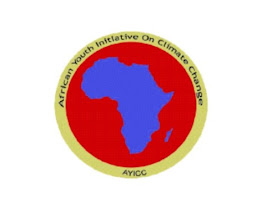Novelty, fashionable in an unfashioanble climate friendly world.
Over the years the talk on climate change has caught up with almost everyone. Calls for living in a climate neutral world and in mitigating and adapting to climate change impacts have been heard. Many organizations are more focusing on climate change issues on awareness, advocacy and adaptation. In Africa particularly the campaigns are on going with more and more people becoming aware of what is going on. I beg to take a pause and find out what really is our goal? do we really believe we can be able to adapt to climate change impacts effectively, do we believe we can mitigate the impacts of climate change.
In most Africa countries their economy is struggling to grow, more are more people are working hard and working smart to try to achieve the western lifestyle, novelty is becoming more common. A graduate from university will want to get a good paying job and would hope to either be driving within a year or under-taking further studies and even eventually moving into a bigger house. Our needs and demands for growth both as individuals and as a country in terms of the economy are warranted. These needs then put pressure on the available resources most of which are natural resources. In such a Continent where novelty is the "in thing", then the subject of recycling becomes "unfashionable". It is fashionable to be seen driving a hummer for example as opposed to a vitz, government officials and even big international and national organizations send their representatives to meetings with these "fuel guzzles" for them that is the acceptable form of transport that befits the "honourables"
So do we really want to change? do we really believe we are working towards a climate neutral world? If solutions in energy efficiency are locally available such as using energy efficient bulbs, saving power, re-cycling among other, if these solution are available why is it that we don't make use of them? where is our good will to change? to fight climate change? for this to happen we have to embrace the fear of being "unfashionable" Tim Jackson in his talk on Tedhttp://www.ted.com/talks/lang/eng/tim_jackson_s_ economic_reality_check.html - economic reality check mentions that we are spending money we don't have on things we don't need to create impressions that don't last on people we don't care about. In his view economic recession is the one thing that has slowed down carbon emission, yet this in it self is a negative factor of our growing economy. His analogy of "keeping out the giraffes" simply points out to the fact that we may try our best to do a lot of "big" things to save the planet yet we in turn neglect the small things we can do to make a change, consumer and behavioral change is a key to this. Prof. Wangari Maathai in her analogy of the humming bird story tells a story of a humming bird that tries to put off a forest fire with drops of water it collects using its beak, while this might be seen as a drop in the ocean and having no or insignificant change it does have a change. To say the least her vision to plant at least one tree proves for sure she was and is a humming bird.
So as the world talks about moving to the carbon neutral and carbon friendly world, i talk of being a humming bird, of being "unfashionable" of doing the best I can in the capacity i have. Of realizing that for this to work it starts with me, it starts with me knowing that recycling my water bottle is seen as unfashionable but will help reduce energy demand, knowing that opting to buy a vitz instead of a hummer goes a long way in reducing the demand for fuel and hence (green house gas) GHG emissions, that talking a walk from point a to b instead of driving, switching off power when i don't need it, using energy efficient bulbs and even planting that one tree on my birthday in turn I contribute to a carbon neural world. I will be a humming bird, I will do the best I can.
@ Lumosi, Caroline 29/10/2010...1211am
Caroline K. Lumosi
Project Officer
Ecological Society for Eastern Africa - ESEA
caroline@ecsea.org or esearegional@yahoo.com
cc to camosi2001@gmail.com
Skype: caroline.lumosi
Conservation film maker
www.biodiversityconservationfilms. org

Comments
Post a Comment